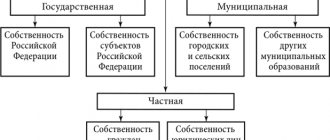If a citizen of the Russian Federation is not registered anywhere, then this is considered a violation of the law. Moreover, the possibilities of such a person in the legal field of the country will be fairly limited. Registration is carried out at the address of residence. A citizen of the Russian Federation has the right to register in premises to which he does not have ownership rights or a share in it. But, in this case, many other nuances will immediately arise for him. Further in the article we will consider the question of how to register in housing that is not owned and what rights can be obtained.
Who can register a person in someone else's apartment?
To register in an apartment or house, you must be its owner or have your share in it. If a person wants to register in an apartment, but is not its official owner, he needs to use the help of an official tenant or owner. If the apartment is owned by several people at once, you must obtain permission for registration from everyone.
Does registration affect property rights?
The first thing you need to remember is that registration and property rights are not the same concepts. Many residential property owners are afraid to register someone because they do not see the difference between registration and property rights.
The list of real rights of a registered person without property rights is limited. In fact, he has the right to live where he is registered and to use the property located in this housing. Ownership rights to real estate cannot arise by reason of registration alone.
Only in the following cases can you obtain ownership rights to the premises:
- purchase and sale agreement;
- completion of payment of corporate contributions;
- a document confirming the privatization procedure;
- court decision on appropriation of property rights;
- entry into force of a will or deed of gift.
The list of these documents does not indicate anywhere that the registration document makes it possible to obtain ownership rights to residential premises.
As a result, you can understand that the certificate of registration and the existence of ownership rights are completely two different documents.
Features of registration
There are two registration options. This is either a registration with the owner of the apartment, or a registration with the right to living space. Both options do not change the essence of registration in any way. Its meaning is that it is a certain guarantee that a person can be in a particular region, live there and enjoy possible social benefits. Does registration affect the right of inheritance, the right to a share, the right of lifelong residence? No. There is some connection with such a phenomenon as the right of residence, otherwise registration has nothing to do with issues of property disposal.
The first thing that should be said about registration with a person who has the right of ownership, and accordingly, gives the right of residence, and not lifelong residence, is a feature of such a procedure. The bottom line is that you can live without registration, but it offers a person some privileges that will be necessary sooner or later.
It is possible to use certain services:
- there is no need to pay for services from the municipality, it is provided free of charge;
- there is an opportunity to queue for kindergartens and schools;
- is given the opportunity to receive various social benefits;
- no difficulties in getting a job;
- it is possible to receive medical care according to your area of residence completely free of charge;
- You can receive various documents at the place of registration.
That is, when there is registration, which is required both by law and by the essence of social relations, then living in a new locality or even region will not cause difficulties.
A person cannot live without registration for more than three months, otherwise he will be held accountable.
Separately, it should be noted that only the person who has the right of ownership even to a share in the apartment registers interested parties. You can register only with his consent; in addition, those owners who have the same right to housing have the right to vote. Persons registered in the house have only certain capabilities and cannot make any decisions independently. That is, any owner has the opportunity to simply not allow registration, which is not prohibited by law.
Does the registered person have the right to the apartment itself, or is only his residence allowed in it? Of course, persons who are registered can be in the apartment, but they cannot have the right to all types of property in housing, real estate in general. Only owners have full control over housing. This rule is expressly provided for by law, and only an agreement between the owner and the registered person can change this order of relations.
At the same time, registered persons may be heirs in the future, but not have rights in the present; they may take part and have some opportunities for an apartment, but at the same time not be recognized as full owners. Although inheritance relations are considered a separate category, nevertheless, according to them, persons receive property only at a certain moment, which also will not give them rights when receiving registration. It makes no difference what kind of relationship binds the owner and the registered person if there is no completed transaction between these people regarding a specific home. The most common option is the right of life residence.
We recommend that you read:
Registration in the apartment of the owner of citizens of the Russian Federation
What rights does a registered person who is not the owner of the property have?
You can often hear the question of what rights does a person registered in an apartment in which he is not the owner have. The concepts of ownership and registration are not the same and provide completely different opportunities. The rights of a person registered in an apartment who is not the owner are as follows:
- he can issue a TIN and SNILS;
- he can register an individual entrepreneur;
- live on the premises where he is registered;
- use the property in the apartment and multi-storey building where he is registered;
- register your child for school, college or kindergarten;
- get a job at the place of registration (if necessary);
- register your children or relatives in the property;
- agree in writing to the registration of others.
All of these possibilities can be summarized into a few general categories. But registration definitely cannot give ownership rights.
Types of registration
Registration in an apartment can be indefinite or temporary. In the first case, we are talking about long-term (lifelong) use of living space. Permanent registration is recorded in the passport of a citizen of the Russian Federation.
Temporary registration can be issued at the place of residence or at the point of stay. For example, if a person stays with his spouse for a long time, but is registered at a different address, the law requires registration at the new place of residence. It is not indicated in the passport, but requires the issuance of a certificate of temporary registration.
If a person lives at a different address in connection with the performance of official duties for no more than 90 days (for example, he is sent to another city), then this requires registration at the place of stay and the issuance of an appropriate document. In all three cases, registration is carried out by the Directorate for Migration Issues (Ministry of Internal Affairs).
Living in an apartment without registration may result in administrative sanctions for both tenants and the owner.
By law, every person changing their location is required to register at their new place of residence within 7 days from the date of arrival. If temporary residence is intended for no more than three months, then registration must be completed within 90 days. If this is not done, the citizen will face a fine of up to 3,000 rubles.
This is interesting: If there is no registration in the passport, what is the fine?
Under what conditions can you become the owner of a property?
A registered person without property rights has limited rights. Most importantly, he has no right to dispose of it. But, having a registration in a real estate property, you can become its co-owner if nothing has been privatized before.
Also, for this you must be related to the owner of the real estate. If for some reason these family ties disappear, the right to own the share also disappears automatically. This nuance is spelled out in Law of the Russian Federation No. 1541-1 of 2021.
Dear readers! We cover standard methods for solving legal problems, but your case may be unique. We will help you find a solution to your problem for free
— simply call our legal consultant at:
+7 (495) 128-73-40 (Moscow)
+7 (812) 603-71-55 (Saint Petersburg)
8 (800) 302-33-75 (free call within Russia)
It's fast and free ! You can also quickly get an answer through the consultant form on the website.
It is worth considering the option that a registered person has the opportunity to register his children in the residential premises. This may have its own difficulties, since it is difficult to write them out.
Does a registered person have the right to claim a share of living space?
Connection to place of residence is important. If a person does not have a residence permit, he can be fined, and in the case of foreigners, expelled from the country. Therefore, having a residence permit guarantees that problems will not arise. True, now the term “registration” is already outdated - it would be more correct to call it registration.
Many people think that obtaining such a registration gives privileges. For example, ownership of a share in an apartment. Since a person occupies living space, why not also get a share?
We hasten to upset you: neither temporary nor permanent registration in an apartment gives ownership rights to a share in the living space .
A note about the difference:
Registration information – a stamp in the passport or a certificate of temporary registration.
Information about ownership - a state-issued certificate or extract from the Unified State Register of Real Estate with a seal.
It follows that in the absence of documents for a share, a person cannot be considered its manager .
The presence of registration is not related to ownership, and vice versa. The owner of the share may not have registration in the apartment at all (registration at a different address). But this does not deprive him of the right to part of the housing. The same cannot be said about a registered person - even if he occupies a room, pays part of the utilities, runs the household and participates in repairs - he cannot claim a share of the living space.
However, there are exceptions to any rule.
If housing is not privatized
Now there are still many objects that belong to the state. Registration in a municipal apartment only gives the right to live. Then, by agreement, residents (tenants) can privatize housing.
Consequently, registration in a municipal apartment allows you to become the copyright holder of a share or the entire property (Article 2 of Federal Law No. 1541-I dated 07/04/1991 - as amended in 2021).
Conditions for employers:
- voluntary consent of all family members (tenants);
- saving an attempt for free privatization is given to a person once in a lifetime;
- valid registration in the apartment;
- availability of a social tenancy agreement.
Thus, if the housing is not privatized, but there is a registration, tenants can become its legal co-owners. The object passes into common shared ownership.
Example:
Chicherina lived in a municipal apartment under a social tenancy agreement. Later, with the permission of the authorities, she moved in two tenants - her daughter and her husband. Soon the couple had a child. The question arose about separate living space. Chicherina, her daughter and son-in-law decided to privatize the apartment. They collected the necessary documents and contacted the local administration department. The answer did not take long to arrive - the authorities allowed the privatization of housing. The future owners drew up an agreement indicating the shares of each of them. Considering that a child was born in the family, the proportions of shares were in favor of the parents - ¾ to the husband and wife, i.e. 3/8 for each spouse. Chicherina received ⅛ of the share, and the newborn child received the same amount. The residents took advantage of their registration in a social apartment and transferred it to common shared ownership.
If the registration is with the spouse
The second case is when the property of the spouses is divided. Here you need to look at when the husband and wife bought the apartment? If this happened during the marriage, the housing is considered jointly acquired property (Clause 1, Article 34 of the RF IC).
The law does not take into account whose name the property was registered in - either the husband or the wife. Joint property is divided in half , unless otherwise agreed by the spouses themselves:
- if the spouse had registration in the apartment, during a divorce he will be able to claim ½ of the living space (clause 1 of article 39 of the RF IC);
- if the wife (husband) was not registered in the joint apartment, equality of shares is preserved.
This is important to know: Give up your share of ownership of the apartment in favor of another person
So, in the case of division of property, the status of the living space is taken into account - the jointly acquired property goes into the shared ownership of the husband and wife.
Example:
The Safronov couple purchased a 3-room apartment. After 15 years, they closed the mortgage, but registered the housing in the name of their husband. The wife received an inheritance from her grandmother, so she only had a registration in the joint apartment. Quarrels between the spouses led to divorce - the decision was mutual. Safronov believed that his wife had no rights to the apartment. Since the housing is registered in HIS name, that means he is the sole owner. The ex-husband demanded that his wife deregister, pack her things and move out. However, in practice things turned out quite differently. The wife filed a lawsuit in order to recognize her ownership of ½ of the apartment. The basis is a joint purchase of housing during marriage. Taking into account the provisions of Art. 34 and Art. 39 of the RF IC, the court satisfied Safronova’s claims. The living space was divided into two equal shares. The court explained to the defendant that in the case of joint property, registration/absence of registration of spouses does not matter.
If an heir is registered
The third option, when a registered person has claims to a share in the apartment, is inheritance of property. An example from life will tell you this most clearly.
Example:
Yuri buried his wife and was left alone in a 2-room apartment. My own children grew up a long time ago and had no contact with their father. Brothers and sisters also lived in other cities. The only consolation was Yuri’s niece, Svetlana. She divorced her husband and was in dire need of housing. Yuri gave her registration in his apartment. The woman returned the favor with kindness: she cleaned, kept house, kept track of the bills, and started renovations. She had no selfish motives. During his lifetime, the compassionate owner decided to bequeath a share in the apartment to his niece. Soon Yuri died, and his inheritance was revealed. The notary read out the will, where it was stated that Svetlana receives ½ share - the rest goes to the children of the deceased. It turned out that along with registration in the apartment, the niece also inherited the ownership of part of the housing.
Registration in a municipal apartment
In the Russian Federation there is the concept of municipal and private property. The rights of a registered non-owner in a municipal apartment are not very different from the opportunities provided by a private apartment. The following rights can be added to the list of rights in municipal housing:
- by agreement with the owner of the property, change it to another apartment, which is also owned by the municipality;
- pay utilities;
- carry out major repairs;
- maintain common property.
When can I get an apartment?
According to the law, housing for children on the waiting list is provided upon their personal application when they reach the age of majority or acquire full legal capacity before the age of 18.
The possibility of providing housing up to 18 years of age is also provided for by law. However, it is worth noting that a citizen included in the list is provided with housing after:
- release from an organization for orphans of any kind;
- completion of the organization of vocational education;
- completion of military service;
- release from prison.
In practice, waiting for the required square meters can drag on for years. Often, persons awaiting the implementation of their rights turn to court to protect their interests. In many regions, a queue has already formed of those who must be provided with housing by court decision.
A person from among orphans under a specialized rental agreement must be provided with housing that meets certain requirements:
- The living space must be separate. This could be a residential building or an apartment. Providing rooms in an apartment, thereby creating the conditions of a communal apartment, is prohibited by law.
- Housing improvement must meet the conditions that exist in a particular locality. As a rule, this concerns the presence of water supply, heating systems, and sewerage in a residential area.
- The standard for the provision of housing is established by regulations of the constituent entities of the Russian Federation.
In recent years, many regions have faced the problem of local settlement of orphans. Thus, an entire apartment building or a large part of it could be inhabited by citizens of this category, which created social tension in places of their mass settlement.
In this regard, changes were made to Law No. 159-FZ to limit the provision of apartments in one building. Authorities are allowed to provide no more than 25% of the total number of apartments in an apartment building. The exception is settlements whose population does not exceed 10,000 people.
Opportunities for a registered citizen in non-privatized housing
There are cases when the apartment is not privatized. In this case, a registered citizen in such housing may have certain rights. A person who lives in an apartment under a social tenancy agreement can register other persons in it. However, they do not need to be included in the contract or order. But, for this you need to obtain permission from employees of the municipality, the institution that owns the premises and other property owners; in the case of minor children, you will not have to obtain any permissions.
Residents of non-privatized housing have the opportunity to pay for utilities in several ways:
- use one account;
- divide it into several parts - to each his own.
What rights does a person registered in a home receive?
Typically, permanent residence registration is issued to relatives or loved ones, and temporary registration is issued to tenants and residents. According to the current rules, all persons officially registered at the place of residence automatically receive the same rights as the owner of the home in matters relating to the use of the apartment. In some cases, rights are detailed and specified in the lease agreement.
Without taking into account the rights that have arisen, the tenant is obliged to take care of the living space. All rules of cohabitation must also be observed. This will keep the living space in good condition.
What rights do residents of privatized housing have?
Article 31 of the Housing Code of the Russian Federation specifies the rights of registered citizens in a privatized apartment who live on the same territory as its owner. They have the following capabilities:
- equal rights to use the property;
- equal rights in the use of living space.
If family ties with the owner of the living space are lost, the rights to use it are canceled. But, if a citizen registered in an apartment and not the owner, he has no other option for living and no opportunity to purchase it, the judicial authorities may make a decision that will give him the opportunity to live in the old living space for some more time.
Spouse's rights to housing in case of divorce
If the spouses divorced, then his rights to housing will be determined on the basis of his current property status. If the property was privatized by both spouses, each of them can use their share after the divorce.
If spouses lived in an apartment under a social tenancy agreement, they have the right to remain in it after a divorce. But, in this case, most likely, the contract will have to be reissued.
What rights does temporary or permanent residence permit (registration) in an apartment provide?
Another common situation: a minor has the right to register at the place of residence of one of the parents. It is being implemented without additional permission from the residents living on it. When carrying out the privatization procedure, the child is provided with a mandatory share of property (Article 2 of Law No. 1541).
A person has the right not to live at the address indicated in the passport. However, his permanent registration will not change. But the state obliges a citizen to report his whereabouts if he is absent for more than 90 days. This registration is called temporary. There are no marks in the passport; the address of the place of stay is indicated on a separate insert. It is only valid upon presentation of an ID.









